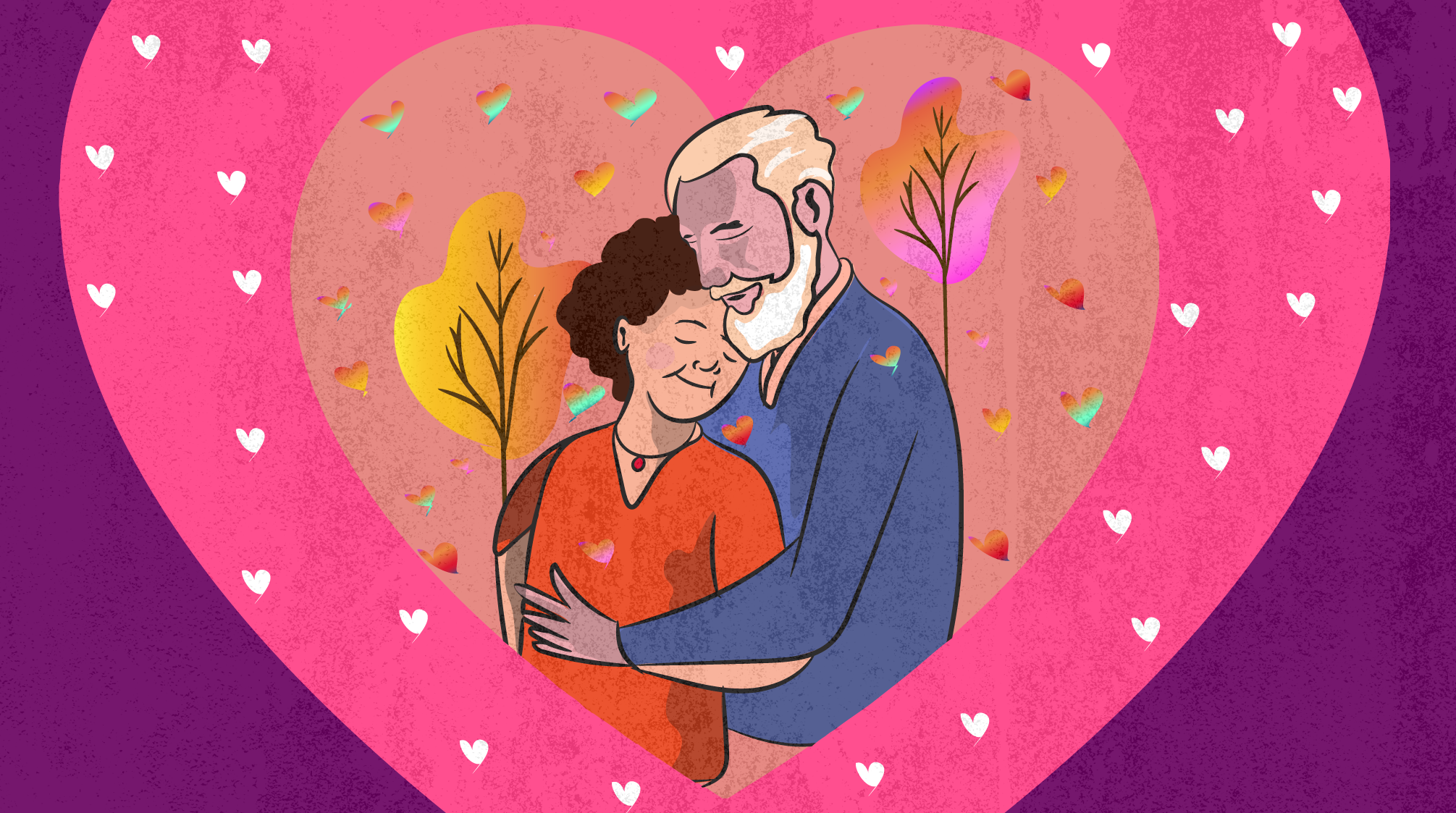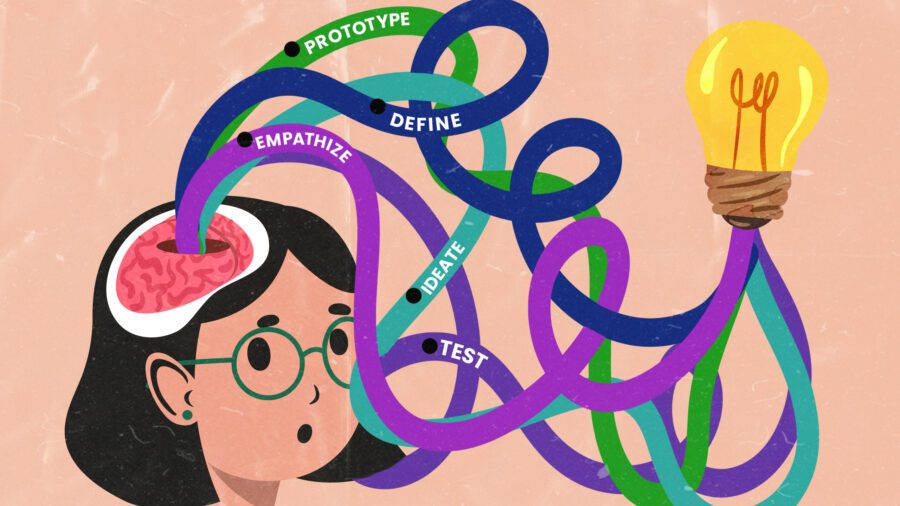
What Elderly Couples Have to Teach Us About Lasting Love & Commitment
Have you ever wondered what the secret to a life-long partnership is?
Of course you have — who hasn’t? Perhaps you were taking a walk around your local park, feeling unsure about your current relationship and wondering if they are the person you will love forever and grow old with. Most people ponder this question when they’re in a relationship, whether they’ve been seeing their partner for a few years or just a few months. It’s perfectly normal to imagine a life with your partner and dream about a future with them.
You walk and walk, getting farther into your own head about whether or not your partner is your person when you see it — an elderly couple walking in the same park as you, holding hands and looking as if they only just fell in love yesterday. You’re overwhelmed with emotions. Aged couples in love are such a sweet thing to witness — they give you hope for your own romantic future. After all, if they can do it, why can’t you make it work?
Then the sweetness subsides, and you are left wondering — what is their secret? What does this elderly couple know that you don’t? How did they know they were the ones for each other, and how did they make it through the hard times?
If these are all questions you have asked yourself, you are both in luck and not alone. Everyone wonders this same thing. In this article, we dive deep into what elderly couples have to teach us about lasting love and commitment and how they stay strong in their love despite hardship. Let’s get into it!
The Science of Lasting Love
While elderly couples have much to teach us about love and commitment, there are a handful of components that should be a part of any healthy relationship. With the high level of divorce rates today, many people become discouraged about lasting love and go about their lives presuming that it is merely a fantasy. However, there is science that dictates love can indeed last a lifetime.
Your Brain in Love
A study that was conducted in 2011 and published in the journal Social Cognitive and Affective Neuroscience compared the brain regions that were activated in individuals who had recently fallen in love with those that were activated in individuals who had been in long-term romantic partnerships. These individuals had been married for an average of 21 years.
The findings showed that both groups had comparable levels of brain activity characterized by high levels of activity in the brain’s reward and motivation regions and predominantly located in the dopamine-rich ventral tegmental region (VTA). The findings imply that not only are partners capable of loving one another over extended periods of time but that they are also capable of continuing to love one another.
Therefore, maintaining romantic love over a long period of time serves a beneficial function in the brain, which recognizes and continues to pursue romantic love as a behavior that garners cognitive benefits.
Neediness vs Love
It has been said that neediness is the adversary of having lasting desire (an important component of romantic love). Neediness and caretaking in long-term relationships, which can easily result from looking to the partnership for safety, security, and stability, dampens the erotic spark. However, if a couple is able to keep their individuality and see one another engage in hobbies that are unique to them and at which they excel, they will be able to continue to view their spouse in a manner that is fresh and exciting.
Give your spouse the room to do what they are good at, and make sure you take the opportunity to watch them while they are in their element, which is when they are the most radiant and confident version of themselves.
The Changing Idea of What Marriage Looks Like
There was a time when people were more inclined to seek marriage for protection and stability. However, as the societal standard has altered, more people are entering into marriage with the goal of actualizing themselves and finding personal fulfillment. It is possible that such a marriage will be more enjoyable for both couples, but in order for it to be effective, both partners will need to devote more time and effort to the partnership.
Boredom is a significant barrier that can stand in the way of long-term romantic love, but happy couples know how to keep things fresh for each other. According to the findings of some psychological studies, the couples who experience the deepest and most fulfilling love are those who not only feel a powerful physical and emotional attraction to one another but also take pleasure in engaging in new activities together, such as trying new things or taking on difficult challenges.
With a better understanding of how love works inside the brain, we’re ready to get into the valuable lessons that elderly couples have to teach us about lasting relationships. These lessons were taken from the real-life experience of several elderly couples who have managed to remain in love for years upon years.
Join In 200 Million+ On The Journey to Greatness
They Fight Fairly
When you are young and brimming with emotions, arguments are much different. As a younger person, you are much more likely to view an argument as an opportunity for you to “win.” This doesn’t necessarily indicate that your intentions are always to make better points than the other and feel powerful during every argument. It just means your understanding of arguments is immature.
To be honest, we were all this way at one point in time. However, true power is not defined by winning an argument. True power comes from understanding how to discuss differences honestly and directly. Instead of trying to “win” the argument or make the other person feel as if they are wrong and you are right, older couples tend to argue with dignity and respect for one another.
If at the end of an argument with your significant other, you don’t feel the relationship is stronger and more intimate than before, you are not doing it right. After an argument, you should feel stronger and closer to each other than before because you directly stated your concerns without trying to demean the other. If your intentions are to make your partner feel stupid or upset when you get into an argument, you should take a step back from the relationship and assess whether or not you are in the right space to be a partner to someone.
They Accept Change
There is a hard truth that you must be willing to accept when you are in a long-term relationship, and it’s not necessarily an easy one to digest. However, people change. When you’re in a partnership with someone long-term, the simple fact is that you are both going to change over the years. Experiences shape us, and as time moves forward, you and your partner both are likely to be shaped in different ways by your experiences.
Don’t get discouraged! This absolutely does not mean that the two of you are destined to grow apart. In fact, it should mean the opposite. A common mistake that many couples make is being resistant to change as time moves on. They get caught up in the idea that if their partner is changing, they are becoming a different person or falling out of love with them, leaving their relationship behind and moving on.
While it is normal to feel anxious about change, especially when it’s your partner (and especially since you are much more likely to notice a change in your partner than in yourself), it is critical not to resist it. Everyone changes as they grow, and that’s a good thing! Growing is a part of life, and by growing together as you age, you can strengthen your relationship and appreciate the new things in each other.
They Communicate
Have you ever been in a relationship that made you feel like simply communicating with one another was like pulling teeth? While this is not typically an indicator of a successful relationship, it doesn’t necessarily mean that it is doomed for failure. Successful communication, like many things in life, is a learned skill. Knowing how to talk to another human being does not equal being a good communicator.
Within a relationship, communication should be a constant thing. It’s great to be constantly in communication with your partner just chatting or discussing topics you enjoy, but good communication also means knowing how to effectively present your concerns or feelings, and it also means being able to listen.
Communication is a two-way street, meaning you can’t simply talk at someone and force them to agree with you. You have to listen to your partner’s concerns, understand them, and voice your own while retaining composure. Additionally, you have to be willing to say you’re sorry, even if you don’t feel like you were in the wrong.
A good rule of thumb that many elderly couples incorporate is that they never go to bed without settling an argument. The only thing that can come from going to bed in the midst of an argument is resentment. If at all possible, it’s best to hash out any disagreements or arguments before going to bed to ensure you are both on the same page and not growing apart from one another. If nothing else, at least try to come to an amicable agreement that you will discuss further in the morning with clear minds.
They Show Affection
It’s no secret that a big challenge of long-term relationships, especially as you age, is keeping the spark alive. When you’ve been with the same person every day for years and years, it’s easy to become complacent and forget all of the romance that filled the room when the two of you first started dating. Over time, you become more akin to roommates than two people in love, which leads to further problems in the relationship. That’s not to mention the health problems that may appear as you enter old age, creating further issues when it comes to displays of affection.
To avoid this happening, it’s critical that you continue to show affection to your partner, even when you aren’t feeling particularly romantic. This doesn’t mean you have to make out with your partner when you don’t want to. Rather, it just means showing them that you still love them and appreciate them.
Displays of affection can be different for everyone, so this is where communication plays another key factor. Discuss with your partner what they need from you to feel loved and what you need. It could be as simple as holding hands while you watch a movie or heating their car up for them when it’s cold outside and they have to go in to work. Whatever kind of affection it is, consistently showing it to one another as you age is an important part of lasting relationships.
Building a Lasting Great Relationship
Relationships are complex and involve so many things. They take equal effort from both parties, a fundamental understanding of effective communication, and above all — patience. As you build a life with your partner and continue to age, you will both learn new things about one another and find new ways to show affection. If the relationship is healthy and brings fulfillment to both parties’ lives, the only thing stopping you from having lasting love in your relationship is your attitude.
Greatness Authors
Greatness Authors is a collection of writers, thinkers, curiosity experts, and students of the world who are committed to bringing you the most up-to-date, impactful, and inspiring information surrounding Greatness topics.

Redefining Poetry: How Instagram Sensation Rupi Kaur Showed That Poetry Is for Everyone

The Young Professional’s Guide to Advocating for Yourself at Work & Setting Healthy Boundaries

Olympian Yusra Mardini’s Incredible Story of Resilience, Rescue, and Refugee Rights

A Beginner’s Guide to Effortlessly Attracting Money and Growth Opportunities

Psychologist Edith Eger’s Inspirational Journey to Find Forgiveness and What It Means for You










